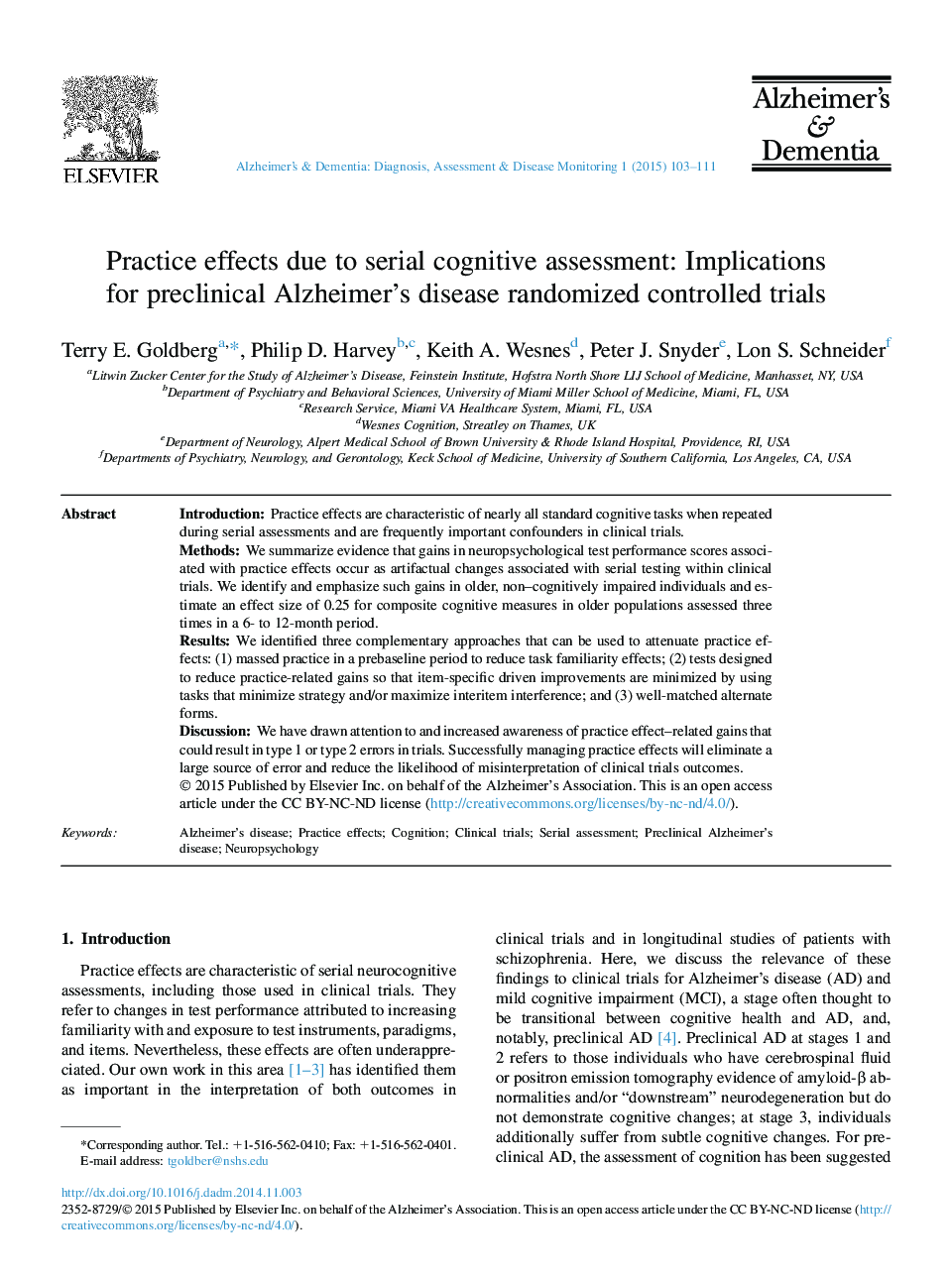| Article ID | Journal | Published Year | Pages | File Type |
|---|---|---|---|---|
| 3032057 | Alzheimer's & Dementia: Diagnosis, Assessment & Disease Monitoring | 2015 | 9 Pages |
IntroductionPractice effects are characteristic of nearly all standard cognitive tasks when repeated during serial assessments and are frequently important confounders in clinical trials.MethodsWe summarize evidence that gains in neuropsychological test performance scores associated with practice effects occur as artifactual changes associated with serial testing within clinical trials. We identify and emphasize such gains in older, non–cognitively impaired individuals and estimate an effect size of 0.25 for composite cognitive measures in older populations assessed three times in a 6- to 12-month period.ResultsWe identified three complementary approaches that can be used to attenuate practice effects: (1) massed practice in a prebaseline period to reduce task familiarity effects; (2) tests designed to reduce practice-related gains so that item-specific driven improvements are minimized by using tasks that minimize strategy and/or maximize interitem interference; and (3) well-matched alternate forms.DiscussionWe have drawn attention to and increased awareness of practice effect–related gains that could result in type 1 or type 2 errors in trials. Successfully managing practice effects will eliminate a large source of error and reduce the likelihood of misinterpretation of clinical trials outcomes.
